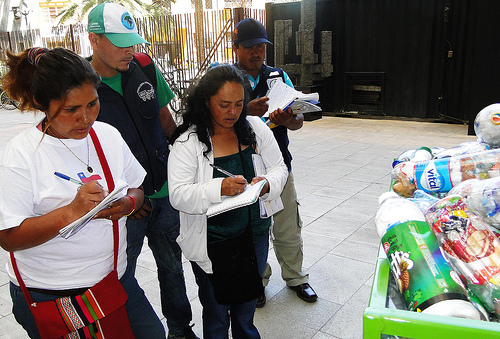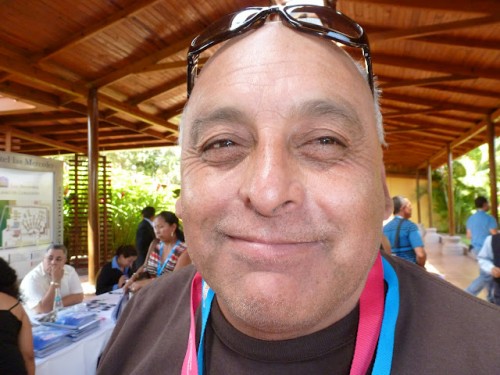
International


SAWPA (South African Waste Pickers’ Association) in solidarity with waste pickers across the globe
The South African Waste Picker’s Association (SAWPA) is in solidarity with waste pickers across the globe. We would like to commemorate the day of remembrance of all waste pickers around the world who die on the streets or landfills. Those Men and Women who we witness everyday being brutalized, beaten to death, shot, run over by trucks while trying to earn a living through waste recycling.

Global Waste Pickers’ Day 2012: workers organize to recognize and formalize their profession
Global Waste Pickers’ Day is celebrated on March 1 in memory of the massacre in Colombia in which 11 workers were brutally killed. For the past 20 years since this tragic event, waste pickers/recyclers have continued fighting for recognition of their work.

The Inner-city Cardboard Recycling Project and Global Wastepicker’s Day
Meeting other informal recyclers from around the world during COP 17 and Global Recyclers’ Day shows me that we are being recognised world-wide and that our challenges are universal. It is also an incentive for me to continue working hard in this job.” Victoria Bubu

Greetings from Chile on Global Waste Pickers’ Day
That day of 2008, in the outskirts of Bogota, the joyful applause of the 600 participants from more than 34 countries fused with the sounds of the rain that fell to accompany this historic moment for all waste pickers. It was us, waste pickers, who defined that we deserved to celebrate a world day whereby all continents would come together for the blistered hands and broken-down backs caused by the work performed to recycle the materials that society discard.
Slideshow: Global Alliance of Waste Pickers in Durban – COP17

Waste pickers! COP17 is important
Here we go again, the yearly United Nations (UN) climate summit is approaching in Durban at the end of the year, with its usual endless list of strange words that make us scratch our heads in confusion. Why do people make such important issues around climate change, waste and waste pickers so complicated when it comes to making agreements that respect grassroots communities and the environment? Did you know that the climate summit is in fact called COP? What does it mean and why is it important to us? Let’s try to get the basics right to make sure we don’t miss the chance to participate in this important opportunity for grassroots communities to shape the future of our planet.

Preparing for COP17 – Waste pickers get active
How do waste picking jobs link up with threatening climate change? Waste pickers from across South Africa will learn about, and discuss this issue in a three day workshop. Together with waste pickers from India, Latin America, Kenya and Senegal they will prepare for the Cop 17 … COP 17 begins on 28 November. While this conference is happening waste pickers will have their own meetings … December 3 is a global day of action. All members of civil society, including the trade unions and environmental organisations, will demonstrate the importance of protecting our planet against disaster. Waste pickers will come out in their numbers to state that they are mitigating the effects of climate change by recycling waste so governments should value them and give them good support and opportunities.

False solutions to climate change – CDM incineration and landfill gas systems
Incinerators take recyclable materials such as paper and plastic to burn them and produce electricity. Landfill gas systems bury vegetables and kitchen waste, mixed with other kinds of waste, to produce methane and then electricity as well. In this way, these technologies actively compete with the valuable contribution of waste pickers to prevent catastrophic climate change as well as with general recycling programmes. Waste pickers and other recyclers offer much greater greenhouse gas reductions, especially when combined with biological treatment methods.

Organising Tips 1 – Waste pickers
Quite simply waste pickers want to see real, immediate, concrete improvements in their lives. They also want to feel a sense of their own power. In experiencing this power, waste pickers will find they change important power relationships. Every waste picker knows what they need to fight for and what would make a difference in their lives. So there are many reasons to organize but how to go about this? The first step is to build and maintain a democratic organization.

